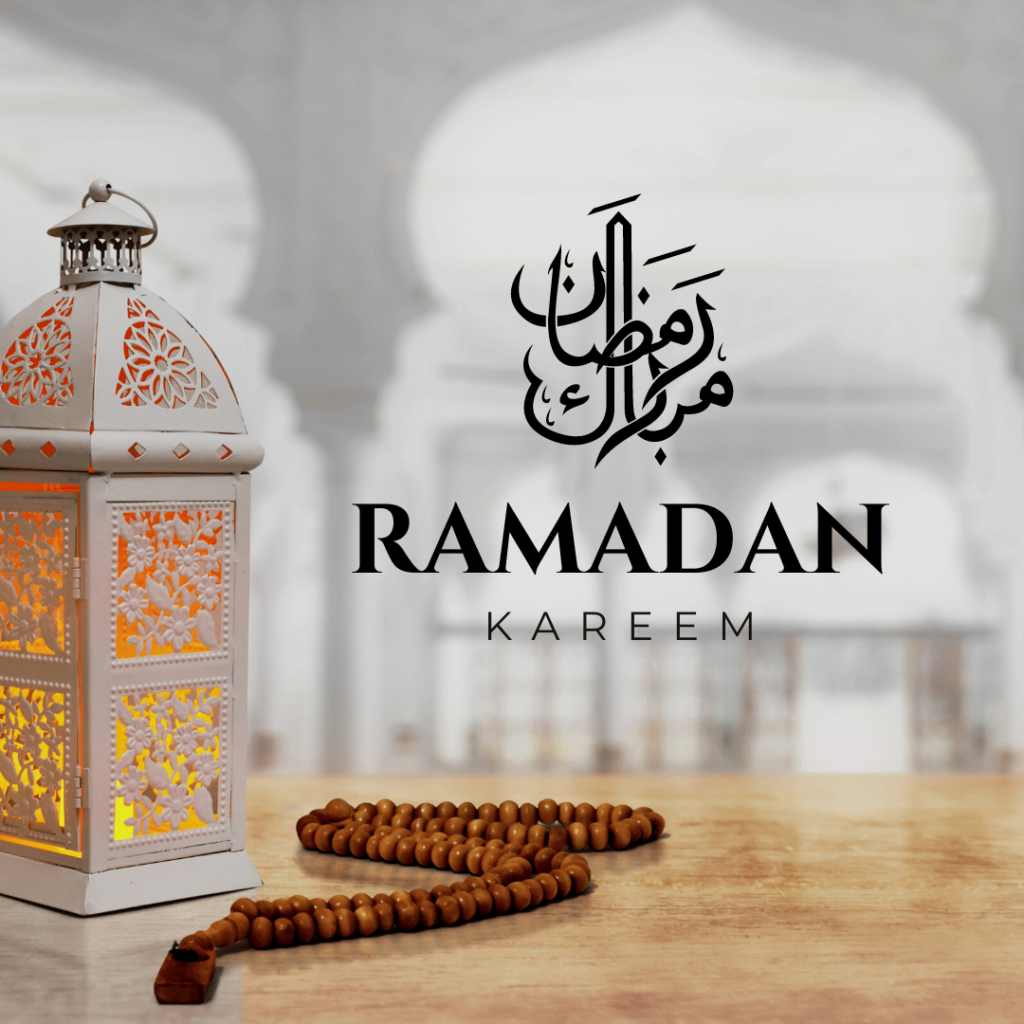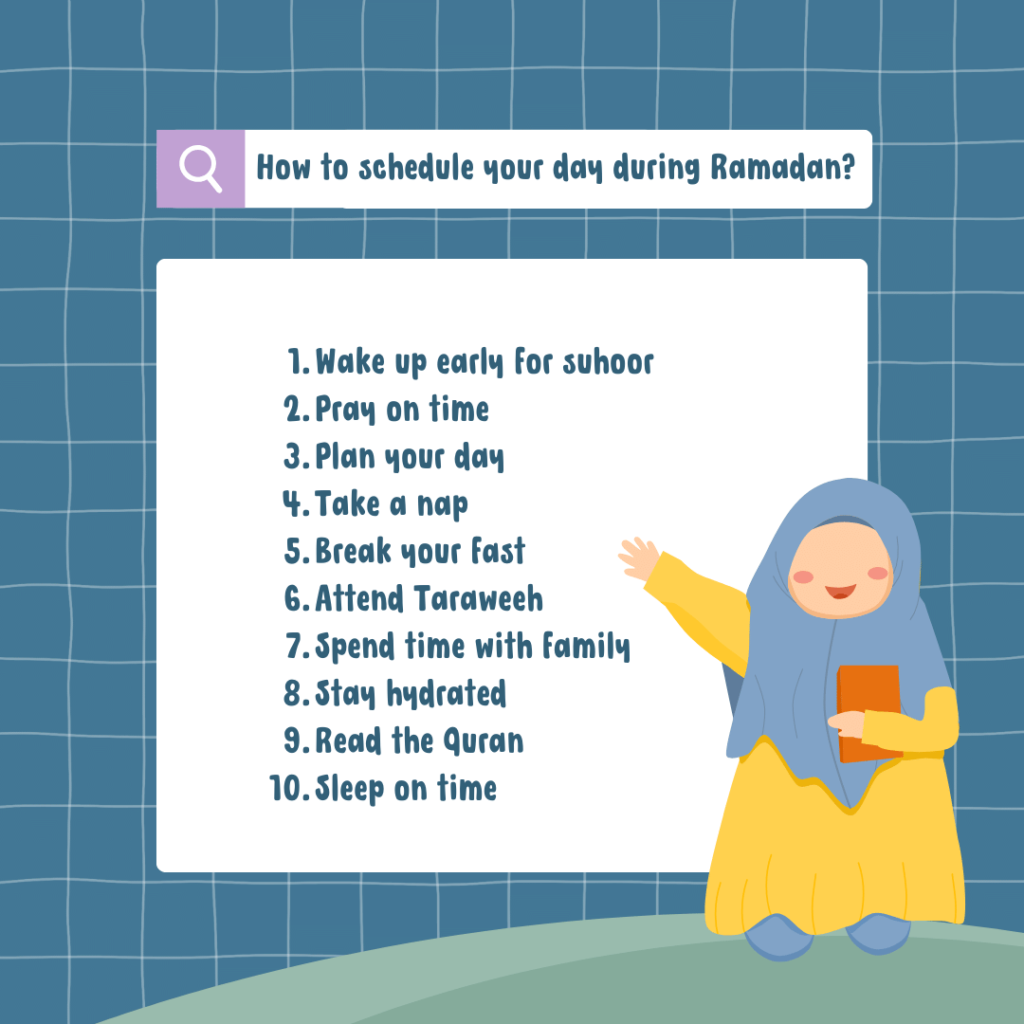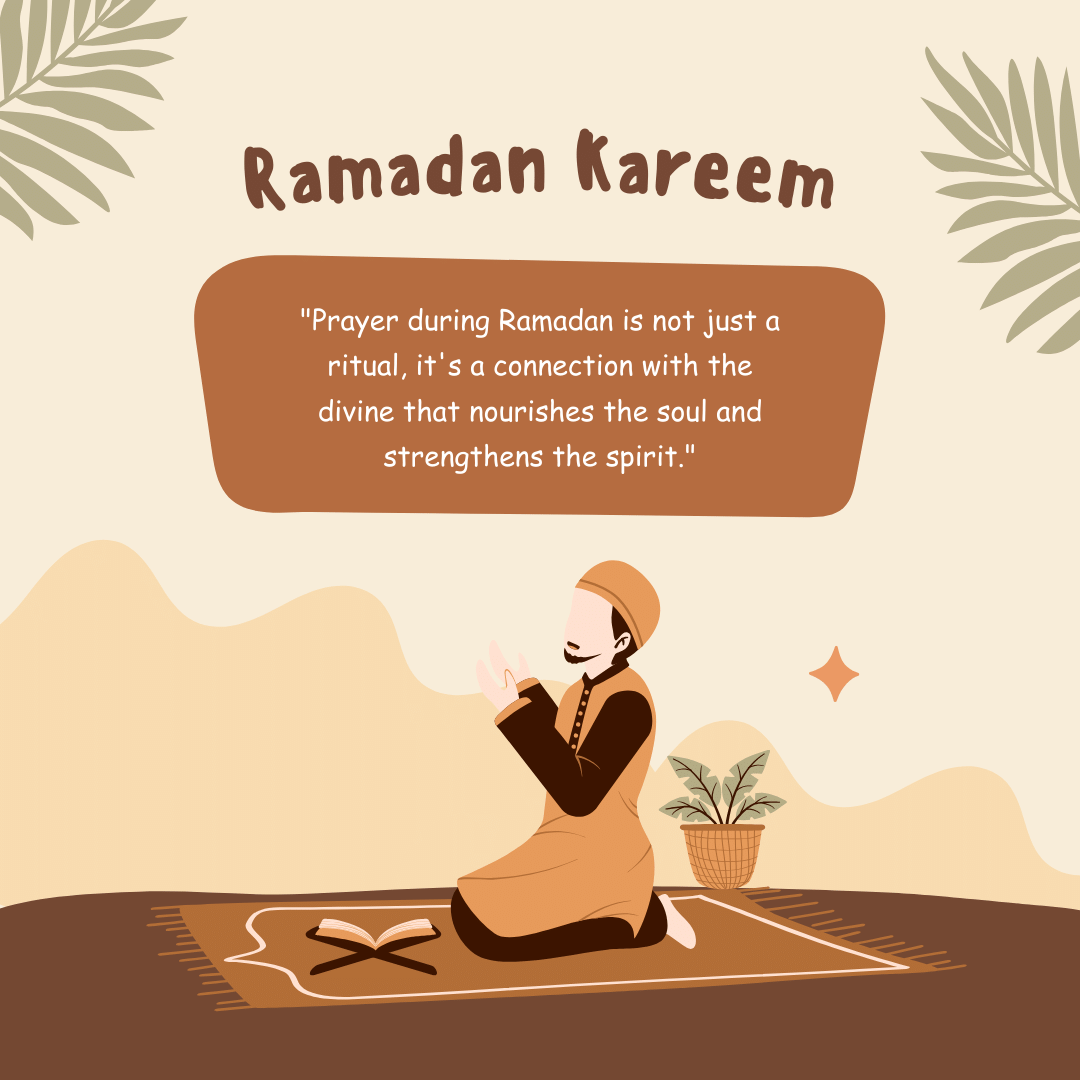This article focuses on the month-long fasting event in Islam. Refer to “Ramadan (calendar month)” for details on the Islamic calendar month. For additional uses of the term Ramadan, please see relevant references.
The holy month of Ramadan, observed by most of the world’s 1.6 billion Muslims annually, holds paramount significance on the Islamic calendar. It is the month during which the Prophet Muhammad صلی الله علیه وسلم received the first verses of the Quran. Throughout Ramadan, Muslims worldwide actively participate in fasting from sunrise to sunset.

What is Ramadan?
The ninth month of the Muslim calendar, Ramadan, holds profound significance as one of the most sacred times for Muslims. It is during this month that believers hold the belief that the Holy Qur’an was sent down from heaven “as a guidance for men and women, a declaration of direction, and a means of salvation.
Ramadan is a sacred month in Islam, observed by the majority of the world’s 1.6 billion Muslims annually. Regarded as the most important month on the Islamic calendar, it commemorates the moment when the Prophet Muhammad صلی الله علیه وسلم received the first verses of the Quran.
During Ramadan, Muslims engage in a month-long practice of fasting, refraining from food, drink, smoking, and sinful behavior from sunrise to sunset. This period is marked by increased devotion, prayer, and acts of charity, with the fast being broken each day with a meal called iftar. Ramadan concludes with the celebration of Eid al-Fitr, a joyous festival that includes special prayers, feasting, and expressions of generosity.
History
In the month of Ramadan, the Quran was revealed as a guide for humanity, providing clear proofs of guidance and the standard to distinguish between right and wrong. Those who are present during this month are instructed to fast, but those who are ill or on a journey should fast an equal number of days after Ramadan. Allah intends ease for believers, not hardship, facilitating the completion of the prescribed period. This practice aims to express gratitude for Allah’s guidance.
( According to Surah Al-Baqara 2:185, )
Believers attribute the belief that God revealed all scriptures, including the scrolls of Abraham, Torah, Psalms, Gospel, and Quran, during Ramadan on specific dates. They say that Laylat al-Qadr, one of the odd-numbered nights in the last ten days of Ramadan, is when Muhammad received his first Quranic revelation. Although Muslims assert that God initially commanded fasting in the second year of Hijra (624 CE), they emphasize that fasting is not an innovation but has always been essential for believers to attain taqwa (the fear of God). Scholars point out historical precedents, such as the pre-Islamic pagans of Mecca fasting on the tenth day of Muharram, as evidence supporting the enduring nature of fasting.
Religious Practice
During the month of Ramadan in Islam, Muslims engage in a variety of religious practices as a means of spiritual reflection, self-discipline, and drawing closer to Allah. Here are some key religious practices associated with Ramadan:
Fasting:
The most significant and central practice during Ramadan is fasting, known as Sawm. Muslims abstain from food, drink, smoking, and sinful behavior from dawn to sunset. Fasting is not only a physical act but also a spiritual one, promoting self-discipline, empathy for the less fortunate, and a heightened sense of consciousness.
Suhoor and Iftar:
Suhoor is the pre-dawn meal before the fast begins, and Iftar is the meal to break the fast at sunset. These meals hold social and communal significance, often shared with family and friends. The fast is traditionally broken with dates and water, followed by a larger meal.
Increased Prayer and Worship:
Muslims engage in additional prayers during Ramadan, including the Tarawih prayers performed at night. These prayers are recitations from the Quran and serve as a means of deepening one’s connection with Allah.
Reading and reciting the Quran:
Muslims place a strong emphasis on reading and reciting the Quran during Ramadan. Many aim to complete the entire Quran over the course of the month, and special nightly prayers, such as Tarawih, often involve the recitation of lengthy portions of the holy book.
Acts of Charity (Zakat and Sadaqah):
Ramadan is a time for increased acts of charity and generosity. Muslims are encouraged to give to those in need, both through the obligatory annual almsgiving called Zakat and additional voluntary acts of charity known as Sadaqah.
Seeking Laylat al-Qadr:
In Islam, believers consider Laylat al-Qadr, or the Night of Power, as the holiest night, occurring during the last ten nights of Ramadan. During this period, Muslims intensify prayers and strive to maximize their spiritual efforts, believing that the Quran was first revealed on this night.
Acts of Kindness and Good Deeds:
Beyond formal religious practices, Muslims strive to embody the values of compassion, kindness, and good deeds throughout Ramadan. This includes forgiveness, reconciliation, and efforts to improve one’s character.
Reflection and Self-Improvement:
Ramadan is a time for deep self-reflection and personal growth. Muslims use this month to assess their behavior, seek forgiveness for past mistakes, and commit to positive changes in their lives.
Important dates
The dates of Ramadan, like other Islamic months, are determined by the lunar calendar, which is based on the sighting of the moon. Below are some important dates and nights associated with Ramadan:
Beginning of Ramadan:
The start of Ramadan is determined by the sighting of the new moon, and it marks the first day of fasting. Muslims eagerly await the announcement of the sighting, and the month begins with the evening of the first sighting.
Laylat al-Qadr (Night of Power):
In Islam, believers consider Laylat al-Qadr as the holiest night, believing it occurs during the last ten nights of Ramadan. Although the exact night remains unknown, believers commonly hold the belief that it occurs on one of the odd-numbered nights, such as the 21st, 23rd, 25th, 27th, or 29th night. Muslims engage in intense prayers and seek spiritual blessings on this night.
Midpoint of Ramadan:
The 15th night of Ramadan often serves as a midpoint reminder for Muslims to assess their progress in spiritual goals and activities for the month.
Last Ten Nights of Ramadan:
The last ten nights, especially the odd-numbered nights, are considered particularly auspicious. Many Muslims intensify their prayers, seeking Laylat al-Qadr during this period.
Nightly Tarawih Prayers:
Throughout Ramadan, Muslims perform special nightly prayers known as Tarawih. These prayers involve the recitation of portions of the Quran and are performed in congregation at mosques.
Eid al-Fitr:
Eid al-Fitr, also known as the Festival of Breaking the Fast, marks the end of Ramadan. The exact date is determined by the sighting of the new moon, and it is celebrated with special prayers, feasting, giving of gifts, and acts of charity. It is a day of joy and gratitude for the blessings received during Ramadan.

Ramadan Calendar 2024
The evening of Sunday, March 10, 2024, is anticipated to mark the commencement of Ramadan this year, with its conclusion expected on Tuesday, April 9, 2024. It is important to note that the Islamic Calendar, following a lunar cycle, may result in variations in the observed dates of Ramadan across different locations due to moon-sightings or the absence thereof.
Conclusion
Ramadan stands as a profound and sacred month in Islam, marked by a multitude of religious practices and spiritual reflections. Fasting from dawn to sunset, a central tenet of Ramadan, promotes self-discipline, empathy, and heightened consciousness.
Muslims engage in increased prayers, recitation of the Quran, and acts of charity, fostering a deeper connection with Allah and a sense of community. The search for Laylat al-Qadr, the Night of Power, adds a layer of spiritual intensity during the last ten nights.
As believers seek forgiveness, reconciliation, and personal growth, Ramadan becomes a time of self-improvement and heightened devotion. The concluding celebration of Eid al-Fitr brings the month to a joyous end, marked by prayers, feasting, and expressions of gratitude. Ultimately, Ramadan serves as a period of spiritual renewal, communal unity, and a testament to the enduring values of Islam.
FAQs
Q: What is the significance of Ramadan in Islam?
A: Ramadan holds profound significance as the month in which the Holy Quran was revealed to Prophet Muhammad صلی الله علیه وسلم. It is a time for spiritual reflection, increased devotion, and a deepening connection with Allah.
Q: Why do Muslims fast during Ramadan?
A: Muslims fast during ramadan as a religious obligation, known as Sawm. Fasting is a means of self-discipline, empathy for the less fortunate, and a demonstration of piety. It is one of the Five Pillars of Islam.
Q: How is the beginning of Ramadan determined?
A: The sighting of the new moon determines the beginning of ramadan. Muslims eagerly await the announcement of the sighting, marking the commencement of the fasting month.
Q: What is Laylat al-Qadr, and why is it significant?
The holiest night in Islam is Laylat al-Qadr, also known as the Night of Power, which takes place during the last ten nights of ramadan. The belief that it is the night when the Quran was initially revealed prompts Muslims to intensify prayers and actively seek spiritual blessings.
Q: Can everyone participate in fasting during Ramadan?
A: Fasting during ramadan is obligatory for all adult Muslims, with some exceptions. Those who are ill, elderly, pregnant, nursing, menstruating, or traveling are exempt. They may make up for missed fasts later or contribute to charity.
Q: When do believers perform Tarawih prayers, and what do these prayers entail?
A:Believers typically perform Tarawih prayers as special nightly rituals during Ramadan, usually after the obligatory Isha prayer. In congregation at mosques, believers recite portions of the Quran during these prayers.
Q: How do Muslims celebrate the end of Ramadan?
A: Muslims celebrate the end of Ramadan with the festival of Eid al-Fitr. Muslims begin the day with special prayers, followed by festive meals, giving of gifts, and acts of charity. It is a day of joy, gratitude, and communal celebrations.
Q: Is there a specific way to greet someone during Ramadan?
A: Muslims often greet each other with “Ramadan Mubarak” or “Ramadan Kareem,” expressing well wishes for a blessed and generous Ramadan.
Q: Can non-Muslims participate in Ramadan activities?
A: While non-Muslims may not fast, they are often welcome to join in various Ramadan activities, attend community events, and share in the spirit of goodwill and unity during this sacred month.





